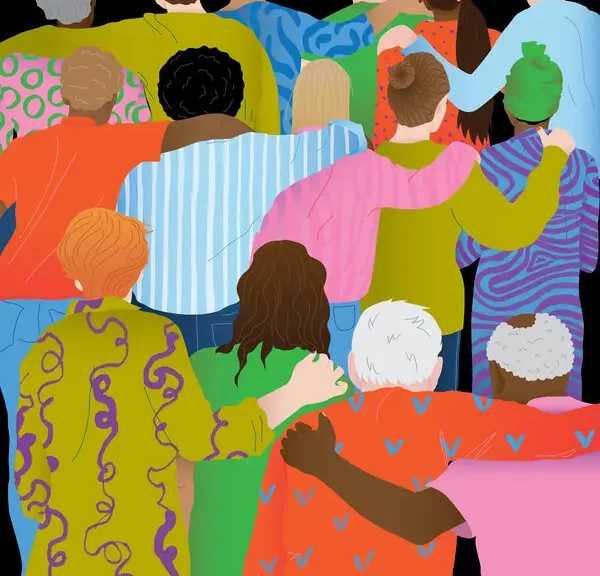
The Vital Role of Compassionate Individuals of European Descent in Combating Racism: Insights from Psychological Science
In the ongoing struggle for racial justice, the involvement of compassionate individuals of European descent is increasingly recognized as indispensable. Drawing upon evidence-based psychological theories and scientific research, we unveil the multifaceted ways in which their actions contribute to the dismantling of racism against people of color. Here are ten key insights that shed light on their crucial role:
Social Identity Theory (SIT): Social Identity Theory, as proposed by Henri Tajfel and John Turner, elucidates how individuals categorize themselves and others into social groups. Individuals of European descent often identify with the dominant ingroup, while people of color are relegated to the outgroup. By extending compassion towards people of color, individuals of European descent challenge biases ingrained within societal structures, fostering positive intergroup relations and mitigating discrimination.
Contact Theory and the Intergroup Contact Hypothesis: Gordon Allport’s Contact Theory posits that meaningful interactions between different groups can reduce prejudice. Building upon this, the Intergroup Contact Hypothesis emphasizes conditions that maximize the positive effects of such interactions, including equal status, common goals, cooperation, and support from authority figures. Compassionate individuals of European descent actively seek out opportunities for meaningful interactions with people of color under these conducive conditions, thereby fostering understanding and empathy.
Allyship Theory: Allyship involves active support and advocacy from members of dominant social groups for marginalized groups. Effective allyship entails listening to marginalized voices, educating oneself about systemic injustices, and using one’s privilege to challenge discriminatory practices. Compassionate individuals of European descent serve as allies by amplifying the voices of people of color, advocating for racial justice, and working to dismantle oppressive systems.
Implicit Bias Research: Studies have revealed the presence of implicit biases that influence attitudes and behaviors towards other racial groups, irrespective of explicit beliefs. Compassionate actions, such as engaging in perspective-taking exercises and confronting implicit biases, help mitigate the impact of these biases, fostering fair treatment of people of color.
Cognitive Empathy and Perspective-Taking: Engaging in cognitive empathy, which involves understanding and sharing the perspective of another individual, leads to greater tolerance and reduced prejudice. Compassionate individuals of European descent actively listen to the experiences of people of color, seek to understand their perspectives, and empathize with their struggles, fostering mutual understanding and respect.
Psychological Benefits of Allyship: Allyship offers psychological benefits for both allies and marginalized groups, including enhanced feelings of self-efficacy, moral integrity, and psychological well-being. By recognizing the personal benefits of allyship, compassionate individuals of European descent are motivated to actively participate in efforts to combat racism.
Structural Determinants of Racism: An intersectional approach acknowledges that racism is shaped by structural factors such as institutional policies and cultural norms. Compassionate individuals of European descent advocate for policy reforms, support initiatives addressing systemic inequalities, and challenge discriminatory practices within institutions to dismantle structural racism.
Long-Term Commitment to Anti-Racism: Effective allyship requires sustained effort and a commitment to ongoing learning and action. Compassionate individuals of European descent continuously educate themselves, engage in difficult conversations about race, and actively support initiatives promoting racial equity, contributing to long-term progress in combating racism.
Social Learning Theory: Social Learning Theory posits that individuals learn attitudes, beliefs, and behaviors through observation and reinforcement. Compassionate actions towards people of color, whether in interpersonal interactions, media representation, or institutional policies, shape attitudes and behaviors towards racial equity.
The Path Forward: By integrating these insights from psychological science, it becomes evident that compassionate individuals of European descent play a pivotal role in combatting racism against people of color. Their actions, attitudes, and advocacy efforts contribute to fostering a more inclusive and equitable society where all individuals are treated with dignity and respect.
In conclusion, the involvement of compassionate individuals of European descent is not only essential but also transformative in the fight against racism. By embracing empathy, allyship, and a commitment to justice, they pave the way towards a future where racial equality is not just an aspiration but a reality.
This article serves as a testament to the power of compassion and solidarity in the pursuit of a more just and equitable world.

